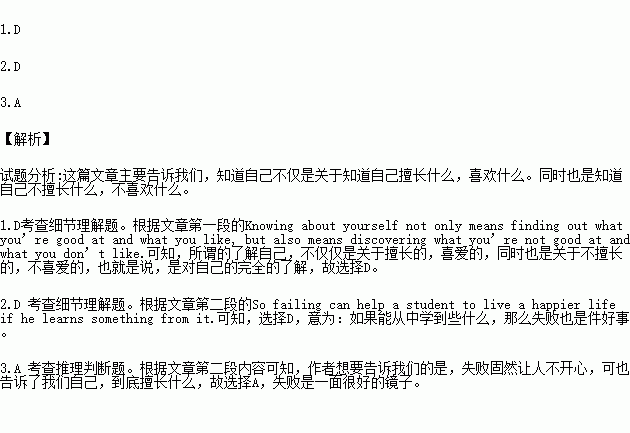题目内容
Knowing about yourself not only means finding out what you’re good at and what you like, but also means discovering what you’re not good at and what you don’t like. Both help you to see your aim (目标)in life.
Although most students would be unhappy if they failed a very difficult physics examination, they have in fact learned a lot about themselves. They know that they should not become engineers or physical scientists. So failing can help a student to live a happier life if he learns something from it. They may then decide on their aims and choose the work they like and are fit for.
It is impossible to decide whether you like something until you have tried it. If you decide to play the piano, you need to take more than one lesson before knowing whether you are really interested in it or able to do well. It is not enough if you want to be a great pianist. You also have to like the hard practice and long training. If you enjoy being a great pianist but hate the work, forget it.
It’s a good plan to try as many ideas as possible when you are young. Then you will find out what your true interests are.
1.If you say you really know yourself,_______________.
A. you know what you don’t like
B. you know what you are good at
C. you have no interest in your work
D. you’ve got the whole picture of yourself
2.Failing can turn into something good ______________.
A. if you have aim in life
B. if your decision is fight
C. if you lead a happier life
D. if you learn something from it
3.What can we learn from the second paragraph?
A. Failure is a better mirror
B. No one is fit for the job of a physical scientist
C. Success is more helpful
D. Physics can help students live a better life
 天天向上一本好卷系列答案
天天向上一本好卷系列答案 小学生10分钟应用题系列答案
小学生10分钟应用题系列答案
